FLEET links over 200 researchers across participating nodes with 23 national and international partner organisations, and is building links with an even wider scientific network. As evidence of the growing collaborations within the Centre, a sixth of publications in 2021 represented cross-node collaborations, compared with only 3% in the Centre’s first year.
With 2021 seeing a continuation of Covid-related restrictions on travel, both within Australia and internationally, FLEET responded by:
- Continuing 2020’s expanded series of research seminars
- Building international links in the Americas (trans-Pacific seminars) and Asia-Pacific (multiferroics conference) – see Case study
- Proactively seeking opportunities to partner with other science organisations on science, equity and development – see Professional collaborations
- Inviting international Partner Investigators and associate investigators to the Centre’s end-of-year workshop, with approximately 19 attending talks and online poster sessions.
Links with FLEET’s New Zealand partner the MacDiarmid Institute were strengthened by adding a new Partner Investigator Dr Simon Granville who has been actively working with FLEET chief investigators at Monash, RMIT, Wollongong and UNSW. When borders allow, FLEET Chief Investigator Prof Jared Cole will begin a Royal Society of NZ fellowship to work with MacDiarmid, building up trans-Tasman links in device modelling and advanced materials simulation.
FLEET will:
- Establish strong, lasting links between Australian and international science communities
- Maximise ongoing benefit to Australia from established FLEET networks and linkages

FLEET is building synergies between several research communities in Australia. The percentage of cross-node publications has grown from 3% (2017) to 16% (2021), reflecting the importance of inter-node research in FLEET.
Publications involving multiple CIs, AIs, PIs and/or nodes make up 61% of all FLEET publications.
Since its establishment the Centre has forged links with 39 new research organisations with aligned research interests; these have joined the initial FLEET network of 20 national and international institutions.
FLEET’s long-time collaborator Dr Simon Granville joined the Centre in 2021 as a new Partner Investigator. Simon is a Principal Investigator at FLEET’s NZ partner organisation MacDiarmid, where he leads the Institute’s Future Computing project to control electron transport and spin through superconductivity and topology.
“I have been able to network with people from different universities and develop new skills that are transferable.
FLEET member survey response
Hosting research seminars
FLEET maintained its Centre-wide seminar series with eight research seminars delivered in 2021 scheduled in and around 14 transpacific colloquia, and the expanded node ‘journal club’ meetings, which now regularly involve multiple interstate Centre attendees.
The research seminar series features a mixture of new and existing investigators and collaborators, as well as breaking research findings from FLEET research fellows.
In addition to keeping members updated with new progress and developments in the field, these talks strengthen partnerships between Australian and international science communities, and establish connections with new collaborators. A total of 300 attendees joined in to hear from Centre and visiting speakers, including around 20% from outside FLEET. The significant proportion of external, international attendees at Centre talks speaks to the seminars’ impact in communicating FLEET’s mission and research to the wider international research community.
Except when confidential, unpublished information was shared, talks were recorded and shared via YouTube and social media for a wider audience.
While Covid restrictions kept all FLEET’s research seminars online in 2021, online delivery facilitated Centre cohesion, inclusiveness and greater awareness of the breadth of FLEET research by enabling greater participation of FLEET members across all its nodes and external participants.
I love the invitations to join seminars and webinars and journal clubs across the country! These are only possible since Covid.
FLEET member survey response
